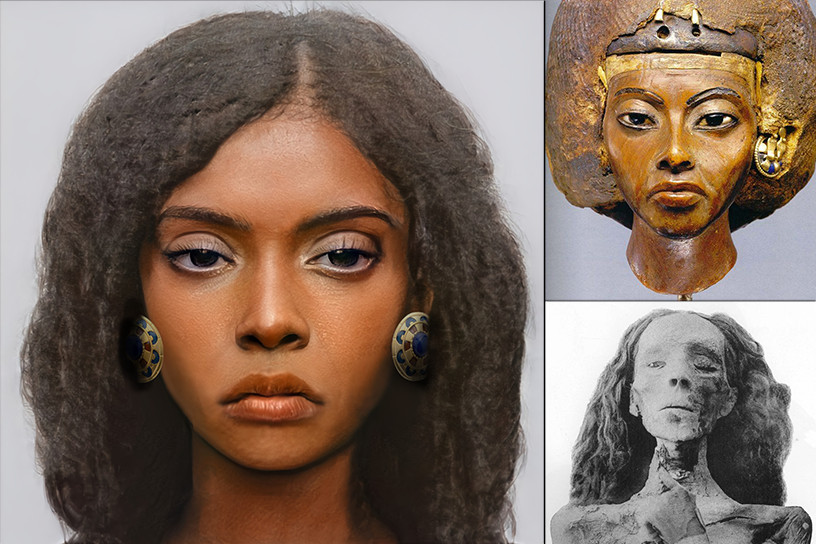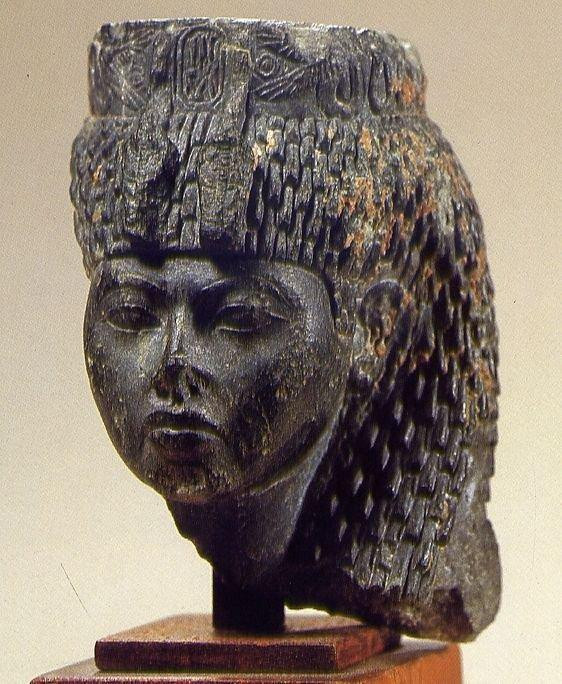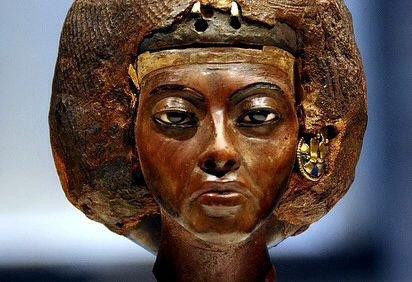Reconstruction of the face of Queen Tiye (1338 BC), Akhenaten’s mother and Tutankhamun’s grandmother, based on a mummy in the National Museum of Egyptian Civilization in Cairo.
A Mysterious Mummy Reveals Its Secrets

For centuries, the enigmatic mummy of Queen Tiye, a renowned figure from ancient Egypt’s 18th Dynasty, captivated historians and archaeologists alike. Buried beneath layers of time and speculation, her true visage remained obscured, fueling debates about her ethnic origins and physical appearance.
A Groundbreaking Reconstruction

In a remarkable feat of scientific ingenuity, researchers have now unveiled a stunning reconstruction of Queen Tiye’s face, shedding new light on this influential queen who reigned alongside Pharaoh Amenhotep III. Utilizing cutting-edge technology and meticulous analysis of her mummified remains, they have resurrected her regal features with astonishing accuracy.
The Revelations of Her Mummy

Contrary to widespread assumptions, Queen Tiye’s mummy revealed a striking countenance that defied conventional narratives. Her hair flowed in natural, straight or wavy strands of rich brown hue. Her nose, with its high-bridged and arched contours, commanded regal presence. Remarkably, her lips exhibited a graceful, moderate fullness, further enhancing her captivating beauty.
A Genetic Heritage Unveiled

Adding to the intrigue, groundbreaking DNA analysis unveiled Queen Tiye’s genetic lineage as belonging to the haplogroup K, tracing her origins to the Eurasian realm. This revelation challenges long-held misconceptions and invites a profound reexamination of ancient Egypt’s ethnic diversity.
The Portrait Head: A Timeless Tribute

The iconic “Portrait Head of Queen Tiye with a Crown of Two Feathers,” a masterpiece dating back to around 1355 BCE, now takes on a deeper significance. Carved from yew wood and adorned with lapis lazuli, silver, gold, and faience, this exquisite bust serves as a testament to the artistic legacy of Queen Tiye’s era and the reverence she commanded.
As we gaze upon the reconstructed visage of Queen Tiye, we are reminded of the enduring allure of ancient Egypt’s most powerful women and the rich tapestry of cultures that wove together this remarkable civilization. Her striking features, now brought to life, beckon us to rewrite the narratives of the past and celebrate the diversity that has always been a cornerstone of human existence.